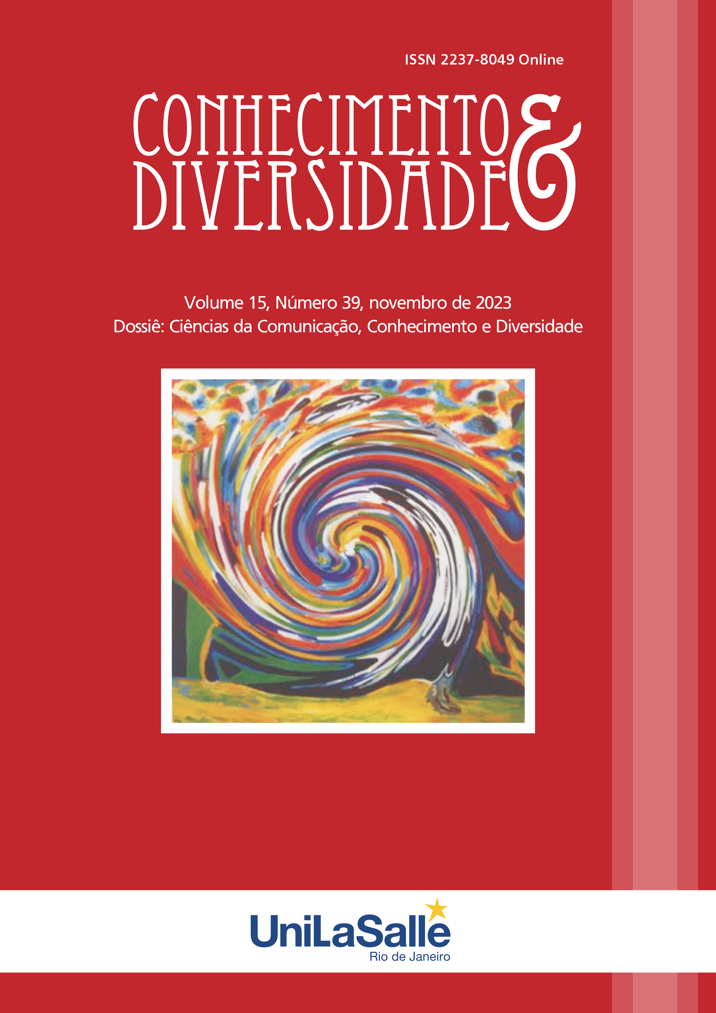PROFESSORES COMO FACILITADORES
EXPLORANDO O PAPEL DOS EDUCADORES EM AMBIENTES DE APRENDIZAGEM PERSONALIZADOS NAS ESCOLAS MARROQUINAS
DOI:
https://doi.org/10.18316/rcd.v15i39.11161Palavras-chave:
Aprendizagem personalizada, Ambientes de aprendizagem, Abordagem centrada no alunoResumo
Este estudo examina o papel essencial dos educadores como facilitadores de ambientes de aprendizagem personalizados nas escolas marroquinas. Como os sistemas educativos de todo o mundo reconhecem cada vez mais a importância da aprendizagem personalizada para satisfazer as várias necessidades dos alunos, a compreensão do papel específico dos professores está a tornar-se primordial. Esta investigação examina as práticas, os desafios e as potenciais oportunidades enfrentadas pelos educadores na implementação de abordagens de aprendizagem personalizada nas salas de aula marroquinas. O estudo utiliza uma abordagem de método misto, combinando métodos de recolha de dados qualitativos e quantitativos. Os dados qualitativos são obtidos através de entrevistas aprofundadas com professores, explorando os seus pontos de vista sobre a aprendizagem personalizada e as funções e responsabilidades associadas dos educadores. Além disso, é distribuído um inquérito por questionário aos professores para recolher dados quantitativos, o que permite uma compreensão mais ampla da prevalência e eficácia das práticas de aprendizagem personalizada em diferentes contextos escolares. Os dados recolhidos serão analisados com recurso à análise temática e a técnicas estatísticas para identificar temas emergentes, modelos e correlações. Os resultados deste estudo contribuirão para todo o conhecimento existente sobre a aprendizagem personalizada e destacarão os desafios e oportunidades específicos enfrentados pelos educadores nas escolas marroquinas. Ao explorar o papel dos professores como facilitadores em ambientes de aprendizagem personalizada, esta investigação informará os decisores educativos, os administradores e os próprios professores sobre estratégias eficazes para promover abordagens de aprendizagem personalizada nas salas de aula marroquinas. As implicações esperadas desta investigação incluem a identificação das melhores práticas e estratégias para integrar a aprendizagem personalizada no sistema educativo marroquino. Os resultados do estudo podem levar ao desenvolvimento de programas de formação de professores, iniciativas de desenvolvimento profissional e recomendações de políticas que satisfaçam as necessidades dos educadores e dos alunos em ambientes de aprendizagem personalizada. Por último, esta investigação visa apoiar a melhoria das práticas educativas nas escolas marroquinas, através da promoção de uma abordagem centrada no aluno que promova experiências de aprendizagem personalizadas.
Referências
PANE, J. F.; STEINER, E. D.; BAIRD, M. D.; HAMILTON, L. S. (2015). Continued progress: Promising evidence on personalized learning. RAND Corporation.
Pane, J. F., Steiner, E. D., Baird, M. D., & Hamilton, L. S. (2017). Informing progress: Insights on personalized learning implementation and effects. Rand Corporation.
TOMLINSON, C. A. (2001). How to differentiate instruction in mixed-ability classrooms. ASCD.
HATTIE, J. (2009). Visible learning: A synthesis of over 800 meta-analyses relating to achievement. Routledge.
WARSCHAUER, M.; MATUCHNIAK, T. (2010). New technology and digital worlds: Analyzing evidence of equity in access, use, and outcomes. Review of Research in Education, v. 34, n. 1, p. 179-225.
Dabbagh, N., & Kitsantas, A. (2012). Personal learning environments, social media, and self-regulated learning: A natural formula for connecting formal and informal learning. The Internet and Higher Education, 15(1), 3-8.
O’Neill, G., & McMahon, T. (2012). Giving student groups a stronger voice: A staff-student partnership model. International Journal for the Scholarship of Teaching and Learning, 6(2), 9.
Downloads
Publicado
Edição
Seção
Licença
Copyright (c) 2023 Oussama Elwarraki, Souhaib Aammou, Jalal Lahiassi

Este trabalho está licenciado sob uma licença Creative Commons Attribution 4.0 International License.
Conforme recomendado pelo o Public Knowledge Project, a RCD adota para seus artigos uma licença CREATIVE COMMONS: Atribuição CC BY 4.0.
Esta licença permite que outros distribuam, remixem, adaptem e construam sobre o seu trabalho, mesmo comercialmente, desde que lhe dêem crédito pela criação original.
Esta é a licença mais adequada oferecida.
Recomendado para a máxima divulgação e uso de materiais licenciados.



